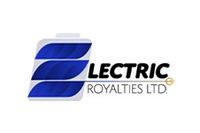DRC to Buy Artisanal Cobalt in Effort to Influence Prices
The African country is aiming to control the entire supply chain and boost government revenue by having more influence on prices.
The Democratic Republic of Congo (DRC) has set up a new state company to buy and market all artisanal cobalt mined in the country.
The African country is aiming to control the entire supply chain and boost government revenue by having more influence on prices.
In a move that could challenge China’s dominance over the supply chain, the government will grant Entreprise Generale du Cobalt, a new subsidiary of state-owned Gecamines, the exclusive right to buy strategic minerals, including cobalt and coltan.
According to Mines Minister Willy Kitobo, if the state cannot raise the money to buy all artisanally mined cobalt, it will have to enter into a partnership with a private company.
The DRC is the top cobalt producer, with more than 60 percent of the world’s output coming from the country, where mining has often been linked to child labor and human right abuses.
“We felt it was time to stop the loss of human lives of our fellow citizens in miserable working conditions and undignified remuneration,” Alberto Yuma, chairman of Gecamines, told Reuters.
Last year, Congress in the DRC passed a revised mining law that increased taxes on cobalt, copper and other metals.
Most cobalt is mined by giant companies such as Glencore (LSE:GLEN,OTC Pink:GLCNF), which has interests in the Katanga and Mutanda mines in the DRC, and China Molybdenum (OTC Pink:CMCLF,HKEX:3993), which holds a controlling stake in the Tenke Fungurume copper-cobalt mine.
Once cobalt is mined it is usually refined in China before it can be used in batteries for electric vehicles. In fact, according to Benchmark Mineral Intelligence, 62 percent of cobalt chemical supply in 2018 came from the Asian country. One of the top buyers of DRC cobalt is Huayou Cobalt (SHA:603799), China’s biggest cobalt refiner.
In 2018, the cobalt space saw an increase in supply from artisanal mining, which, together with other factors, pushed prices lower. As supply jumped, market volatility started to dominate and sentiment toward cobalt and other battery metals declined, with prices down more than 60 percent since their 2017 and 2018 highs.
Despite artisanal miners moving away from cobalt to copper last year due to declining prices, Roskill estimates that about 16,500 metric tons of cobalt were produced by this type of mining in the DRC in 2019 — roughly 15 percent of the country’s total cobalt output.
The move from the DRC could lead to higher prices, according to Benchmark Mineral Intelligence Head of Price Assessment Caspar Rawles.
“Depending on whether Gecamines will have the balance sheet to bear it they might use this to hold material and not let out as much as in the past,” he told the Financial Times. “It might lead to longer episodes of higher prices.”
Don’t forget to follow us @INN_Resource for real-time updates!
Securities Disclosure: I, Priscila Barrera, hold no direct investment interest in any company mentioned in this article.

